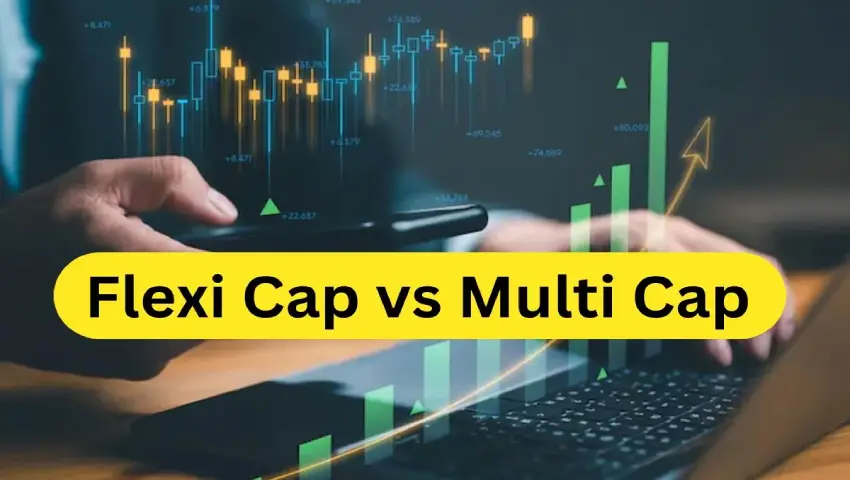
- 01/04/2025
- MyFinanceGyan
- 142 Views
- 3 Likes
- Mutual Fund, Finance, Investment
Multi-Cap Funds vs. Flexi-Cap Funds: What’s the Difference?
Mutual Funds have become very popular in India because they offer good returns and help grow wealth over time. They also protect our money from inflation. Since they are an important part of our financial plans, it’s essential to understand them better and choose the right investment options.
When it comes to long-term investing and beating inflation, equity mutual funds are a preferred choice. Within equity funds, two popular types are Multi-Cap Funds and Flexi-Cap Funds. Let’s understand what these funds are and how they differ.
What is a Multi-Cap Fund?
A Multi-Cap Fund invests in stocks of companies with different market capitalizations—large-cap, mid-cap, and small-cap. This diversification helps balance risk and return. SEBI (Securities and Exchange Board of India) requires these funds to invest at least 25% in each category (large-cap, mid-cap, and small-cap).
What is a Flexi-Cap Fund?
A Flexi-Cap Fund is a dynamic equity fund that invests in companies of any size—large, mid, or small-cap—without a fixed percentage requirement. The fund manager has the freedom to adjust investments based on market conditions. SEBI mandates that at least 65% of the fund’s assets must be in equities.
Which Fund Should You Choose?
Both Multi-Cap and Flexi-Cap Funds offer diversification, but choosing the right one depends on your investment goals, risk tolerance, and time horizon:
- Choose Multi-Cap Funds if you prefer a balanced investment across large, mid, and small-cap companies.
- Choose Flexi-Cap Funds if you want flexibility and a fund manager who can shift investments based on market conditions.
Conclusion:
We hope this article helped you understand the differences between Multi-Cap and Flexi-Cap Funds. Both types can help diversify your portfolio, but make sure to choose one that fits your financial goals and risk appetite.
Disclaimer: This blog is for educational purposes only. It does not provide investment advice or product recommendations.



